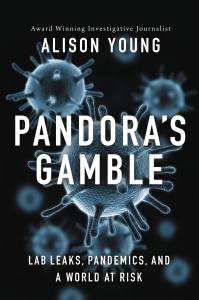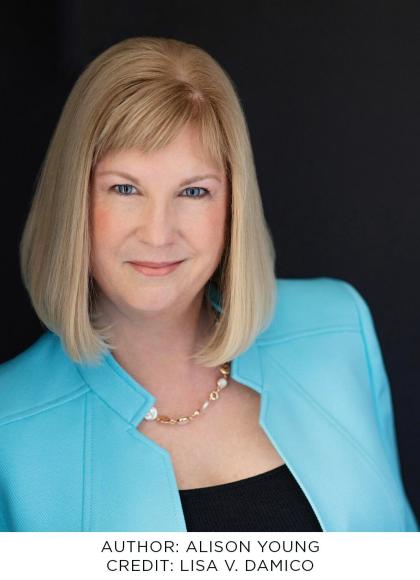Trending this week: Lab Leak

Take a peak inside reporter Alison Young’s book, Pandora’s Gamble
Pandora’s Gamble is a fearless, reported book about laboratory accidents asks the haunting question some elite scientists don’t want the public to entertain: Did the COVID-19 pandemic start with a lab leak in Wuhan, China? This is an obvious question. Yet there’s been an extraordinary effort by government officials in China, as well as leading scientific experts in the United States and around the world, to shut down any investigation or discussion of the lab leak theory. In private, however, some of the world’s elite scientists have seen a lab accident as a very real and horrifying possibility. They know what the public doesn’t. Lab accidents happen with shocking frequency. Even at the world’s best-run labs.
Hear straight from reporter Alison Young, who has spent her career researching the safety of biohazard labs:
“Questions about whether the Covid 19 pandemic could have started with a lab accident in Wuhan may have brought laboratory safety concerns into wider public view. But the problems have been known for decades. It’s just that little has been done to address them.”
“The dismissal of the possibility that labs in Wuhan could have sparked the Covid‑19 pandemic illustrates how many in the scientific community have failed to learn the lessons of past mistakes.”
“Laboratories involved in vaccine research and production can pose significant safety risks because of the large volumes of pathogens they are working with, incidents in China and the U.K. have shown.”
“Around the world, spurred by the Covid‑19 pandemic, another building boom is underway as countries around the world continue to announce plans to open even more new high-containment laboratories. With more labs will come more risks. The failure to conduct an independent probe of the coronavirus labs at the Wuhan Institute of Virology, as well as other research facilities in the city, shows the dangerous lack of independent and transparent international mechanisms for investigating laboratory safety issues in the United States and around the world. Even more troubling, it once again reveals an ingrained culture of reluctance within the scientific community to investigate and police their own when it comes to conflicts between safety and science.”
“Ensuring the safety of this kind of research shouldn’t be left up to scientists alone. We all face the consequences if— or when— people and systems fail. We all have a stake in getting this right.”
A ‘remarkable book.’ – The New York Times
This fearless, deeply reported book about laboratory accidents asks the haunting question some elite scientists don’t want the public to entertain: Did the COVID-19 pandemic start with a lab leak in Wuhan, China?
This is an obvious question. Yet there’s been an extraordinary effort by government officials in China, as well as leading scientific experts in the United States and around the world, to shut down any investigation or discussion of the lab leak theory. In private, however, some of the world’s elite scientists have seen a lab accident as a very real and horrifying possibility. They know what the public doesn’t. Lab accidents happen with shocking frequency. Even at the world’s best-run labs.
That’s among the revelations from Alison Young, the award-winning investigative reporter who has spent nearly 15 years uncovering shocking safety breaches at prestigious U.S. laboratories for USA Today and other respected news outlets.
In Pandora’s Gamble, Young goes deep into the troubling history — and enormous risks — of leaks and accidents at scientific labs. She takes readers on a riveting journey around the world to some of the worst lab mishaps in history, including the largely unknown stories of the lab workers at the U.S. Army’s Camp Detrick who suffered devastating infections at alarming rates during World War II. And her groundbreaking reporting exposes for the first time disturbing new details about recent accidents at prestigious laboratories – and the alarming gaps in government oversight that put all of us at risk.
Sourced through meticulous reporting and exclusive interviews with key players including Dr. Anthony Fauci, former CDC Director Tom Frieden and others, Young’s examination reveals that the only thing rare about lab accidents is the public rarely finds out about them. Because when accidents happen, powerful people and institutions often work hard to keep the information secret.

